serial number 1699

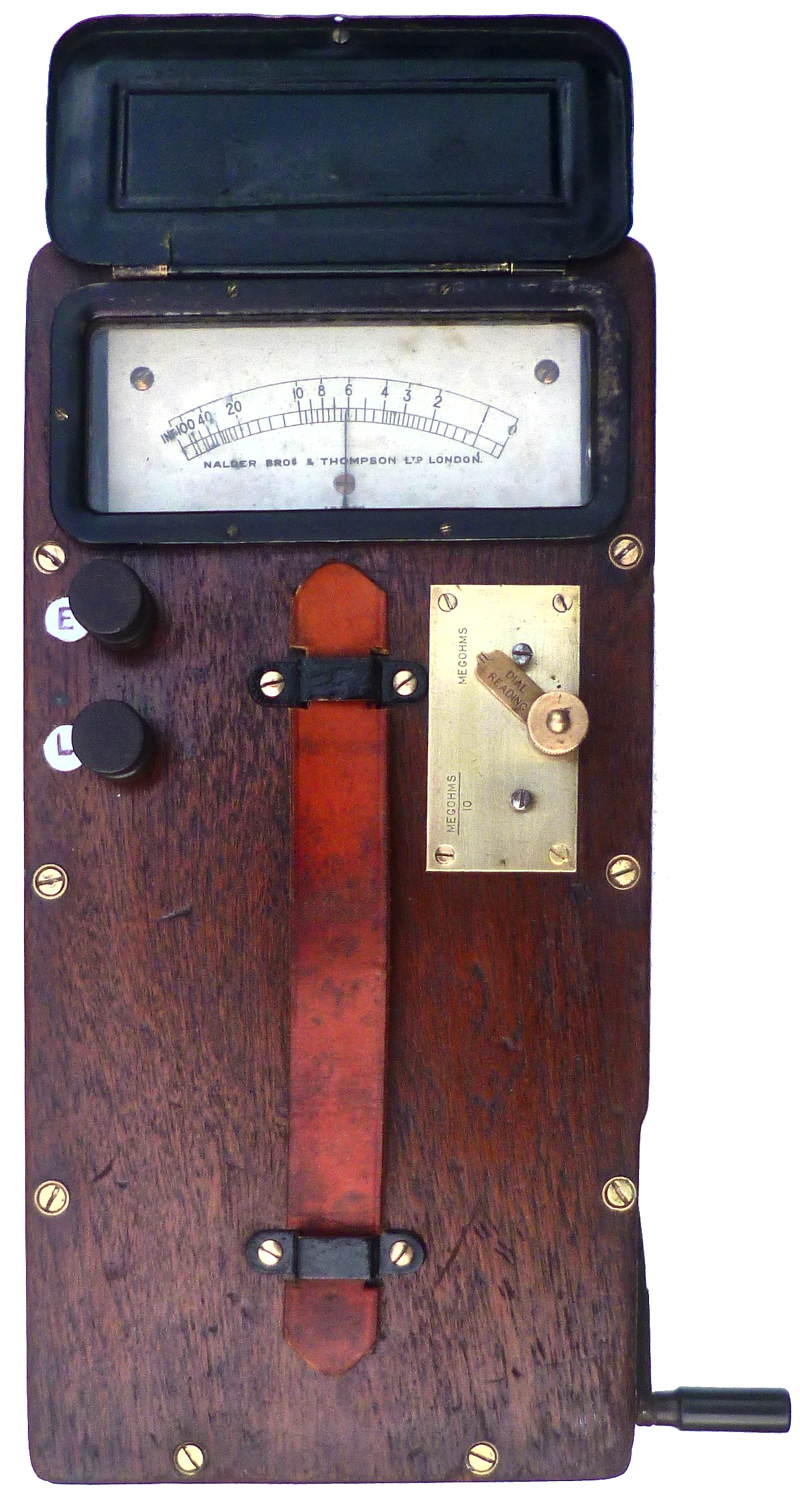
As received and how it now looks
serial number 1699


As received and how it now looks
Nalder "Ohmer" This is a 500 Volt Insulation Tester housed in a wooden case. Dating from the 1935 or possibly even earlier, the meter and generator are housed in a wooden dovetail joint box, with a hinged protective lid which opens to reveal the meter. This unusual insulation tester was purchased at auction in 2017 and as can be seen was in poor condition and had suffered from damp. I have cleaned it up and made a new carrying handle. faulty
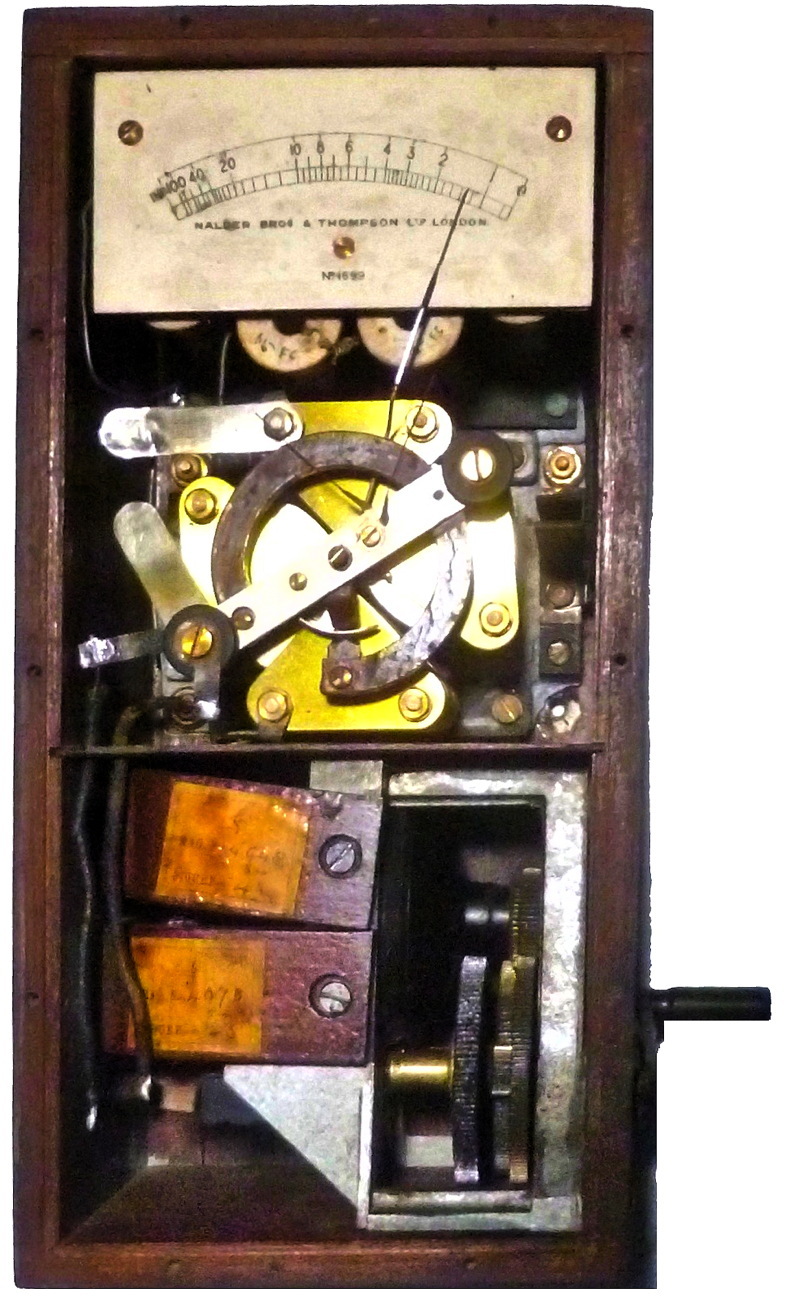

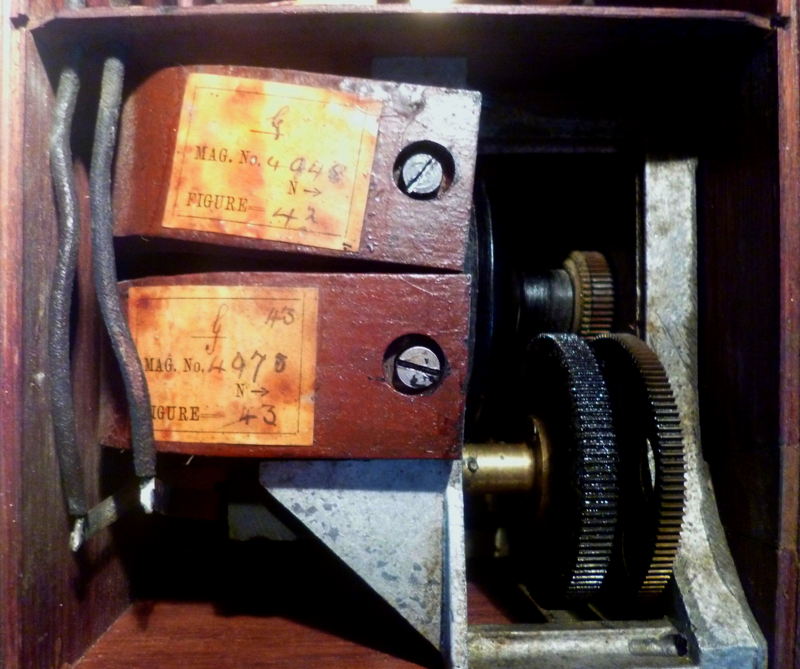
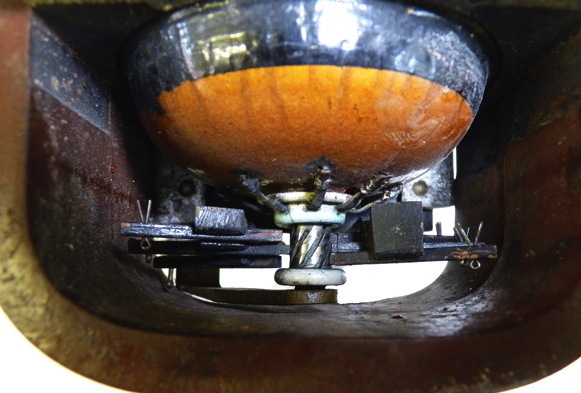
Close up views of commutator and brush assembly hidden by the magnets in the pictures above
The generator produced 250 volts as measured by an AVO. The wire
wound resistors were all open circuit. Each bobbin is marked 1.6Ω which
I guessed really meant 1.6 megohms. I disconnected these and with a
string of 1Watt resistors. The readings were erratic but it sort of
worked.
It seems odd that one of the magnets is mounted at an angle, it is
screwed tightly in place so I assume that this was a way of adjusting
the voltage output and would have been set at the factory. The markings
on the back of the scale plate detailing the calibration and serial
number make me think that the scale plates were individually calibrated
for each instrument.The half scale value on the scale plate is 6MΩ and
the divide by 10 would be 600kΩ so would have thought that one set of
resistors should add up to 5.4MΩ and the other to 600kΩ. So the 1.6
markings remain a mystery for now!
When I removed the generator from the case I was able to see the
unusually designed commutator and note that although three brushes were
present on one side there was only one on the other. As there seemed no
possibility to find small enough bushes to replace the broken ones I
thought it would be better to have two on each side. It made no
difference to the maximum voltage I could get.
In Electrical Engineering by TC Baillie MA DSc AMIEE published by Cambridge University Press in 1915 there are descriptions and illustrations of several portable testing sets including the familiar wooden cased Evershed and Vignoles instrument described HERE. Among the other instruments described is the Ohmer made by Nalder Bros and Thompson which is also a self contained instrument but unlike others has an electrostatic meter movement which made it the lightest instrument on the market at the time.
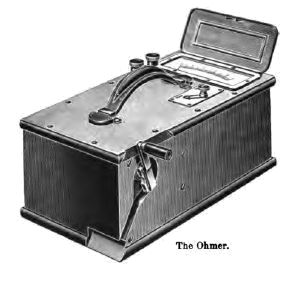
Nalder Brothers and Thompson started back in the 1890s and up until
1969 was based in Dalston East London. In 1970 it was incorporated with
Reyrolle and moved production to Hetton le Hole in Durham. Reyrolle
became part of Rolls Royce and latterly part of Siemens.

